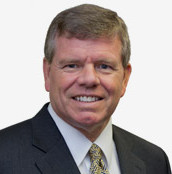Hallett Mathews, MD, MBA, is the Executive Vice President and Chief Medical officer of New York City-based Paradigm Spine, LLC, a non-fusion spinal implant and device technology manufacturer. Dr. Mathews is also a board-certified orthopedic spine surgeon and minimally invasive spine surgery pioneer.
Spine surgery has been drastically evolving over the past nearly 28 years since Dr. Mathews began practicing. The industry's latest phase of development includes surgeons performing procedures in outpatient centers rather than inpatient facilities.
Here are Dr. Mathews' three points on why spine surgery is moving toward outpatient surgery centers and away from inpatient institutions.
Technological development
Dr. Mathews credits much of the transition to the development of more appropriately invasive techniques. Spine surgery has transitioned from a one incision and one-operation-fits-all approach to more patient- and disease-specific operations, he says.
"Surgeons have gotten better diagnostically," Dr. Mathews says. "They can see specific pathologies on advanced technology imaging that correlates to clinical symptoms and now they can address disease using small incisions effectively."
Surgeons can now let the pathology dictate the care. And because of the evolution in surgical approaches, more surgeons are finding outpatient surgery centers to be more suitable settings for care.
"Surgeons can now address the pathology in a setting that is appropriate for the patient's pathology and health status," he says. "They have the ability to undergo surgery in a safe and comfortable environment and can avoid the hospital if they'd like."
Patients prefer the outpatient setting
Patients are becoming more aware of the risks posed by having spine surgery performed in a hospital, including the increasing rates of infection and exposure to disease. Most spine candidates are not suffering from life-threatening diseases; rather, they are looking for improved quality of life. Ambulatory surgery centers many times more accurately match the needs of patients undergoing less invasive spine procedures.
"Patients are starting to realize you only go to a hospital if you have to," Dr. Mathews says. "You can have appropriately invasive spine procedures done in a relaxed, non-threatening, collegial setting."
Most patients view ASCs as friendly and non-threatening, whereas larger institutions and hospital systems can create fear and apprehension.
Spine surgeons want more control
While patients benefit from the cleanliness and relaxed atmosphere of surgery centers, the implications of outpatient spine also excite surgeons. Outpatient settings, largely due to the smaller size and ownership structure, allow physicians more input and control than hospitals.
Physicians can have a say in the devices purchased and used, the center's turnover time, personnel in the operating room and pre- and post-operative management, Dr. Mathews says.
"The turnover time in a large institution can be anywhere from one to two hours because of staffing, lack of focus and a one-size-fits-all approach," he says. "In contrast, you often find outpatients settings to have very efficient turnover from room to room."
Staff members working in surgery centers are often happier and more productive than some hospital staff because they do not have to work late into the evening finishing tasks that should've been done earlier but were delayed by inefficiencies, he says.
"Surgeons are more efficient; patients don't have to wait as long," he says. "Surgeons like the control of the outpatient setting versus the lack of control in an institution."
More Articles on Spine-Driven ASCs:
Glendale Adventist Receives Blue Distinction Center Designations for Spine Surgery, Hip and Knee Replacement
Dr. Joseph Bosco III Elected to AAOS Board of Directors
Minimally Invasive Techniques Show Promise as Lumbar Stenosis Treatment


